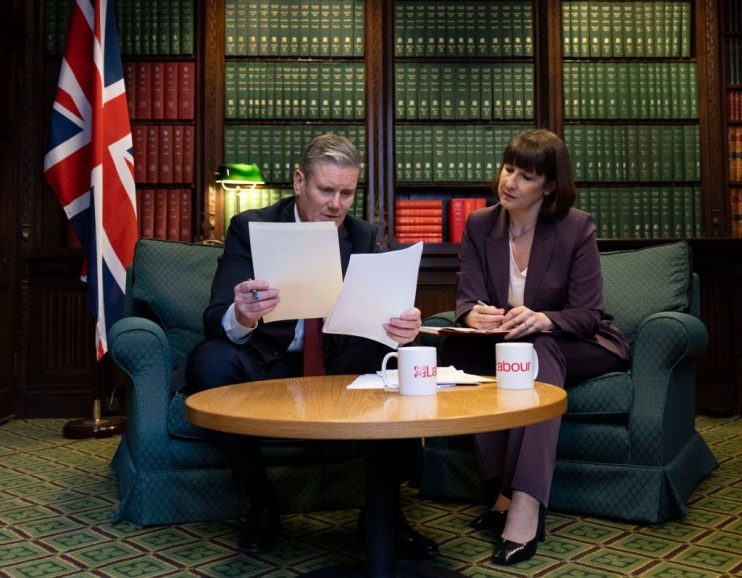Hunt’s tax cuts are just traps for Labour

Hunt’s budget has done little to turn Tory fortunes around, but it will make Labour’s job harder, writes John Oxley
Today’s budget will be one of the last set pieces the Tories have to win back the British public ahead of the general election. Yet Hunt’s approach shows the difficult balance he must strike between the desires of the electorate, the fiscal realities and the backbenchers nervously looking at their own majorities. Unfortunately for him and his party, it seems unlikely that any of the measures will move the dial much.
Tory orthodoxy is of course that tax cuts drive their voters. This is the most likely rationale between the Chancellor’s two biggest giveaways – a reduction in National Insurance and a(nother) freeze on fuel duty. Both are taxes that hit ordinary working people and perhaps offer the greatest benefit for their fiscal cost. The problem is that the public isn’t listening.
Polling across the board shows that people are wary of tax cuts now. They can see their public services creaking and favour greater spending, not giveaways. Moreover, tax is low on the list of worries for those who are struggling. The average earner might be £40 a month better off now, and some dual income households will be better off thanks to the ironing out of the inconsistencies around Child Benefit thresholds. But it all pales in comparison with rising costs. Over the last couple of years, energy, rent, mortgages, childcare, food and almost everything else has surged. People are bristling at that more than taxes.
Indeed, the Tories have already found that these measures aren’t moving the dial. An NI cut in January hasn’t granted them any electoral advantage, with polling static in the low twenties. Numbers are even worse among those of working age, who should be primary beneficiaries of such a move. The Conservative Party is repeating these failed measures, seemingly unaware of how ineffectual they are. Tax cuts may be red meat for backbenchers and members, but they are not enough to impress the broader electorate.
The only hope now is that these cuts might come out as traps for Labour in an election campaign. Lowering the tax take now will play into Labour’s plans. Either they will be forced to reduce spending plans or pledge to reverse Hunt’s tax cuts. It might prove a sticking point as the opposition’s intentions come under the greater scrutiny of a campaign. By then, however, the electoral deficit might be too great to make up.
Perhaps Hunt’s most interesting moves are the ones designed to defang the Labour offensive. Extending the windfall taxes on the gas and oil sector and the scaling back of non-dom status have both been popular opposition policies. The Tory party have long briefed and pushed back against them, before now incorporating them. It’s a dash of leftist populism that goes against their instincts, but it also robs Labour of the electoral advantage of pushing them.
Were things tighter, a good budget for the Tories might make up lost ground. Now, however, Starmer seems too far ahead – personally more popular than Sunak, trusted more on almost every issue and with leads that have been sustained for more than a year. More than that, the Tory brand is in the mud. As much as they might tinker with taxes, the public is largely not listening.
Politically, Hunt seems to have avoided the huge missteps of budgets past. He hasn’t replicated Truss’s crisis, or Osborne’s Pasty Tax shambles, but equally, he hasn’t done anything that will turn Tory fortunes around. Quite simply this is because there was almost nothing he could do. The public has moved away from the party and seems set in their views. The budget will go down as another moment where the Conservatives hoped something would turn up, but it didn’t. The only real question now is how much it hems in the next government.
